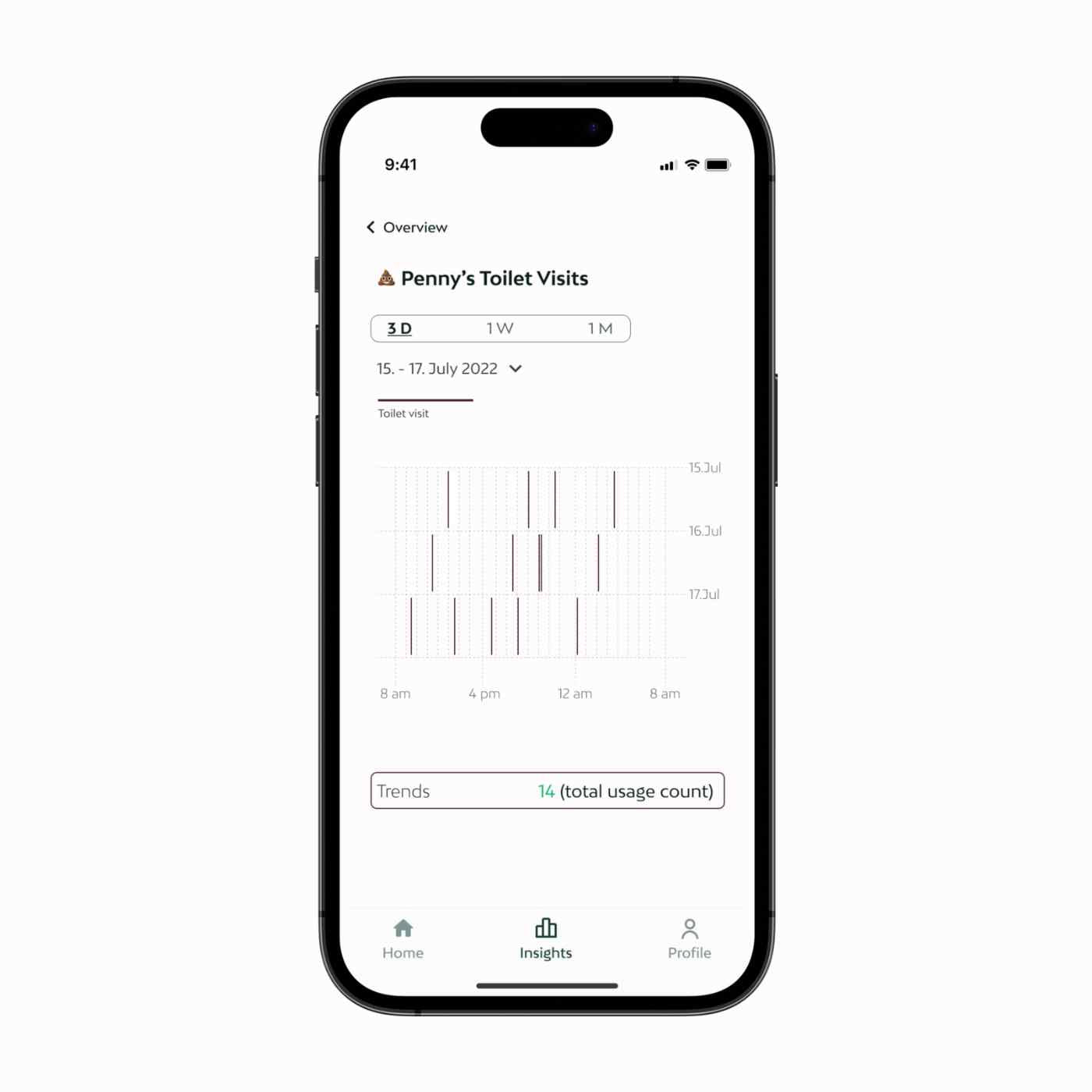Developed for you and your cat
Feniska helps you identify symptoms of kidney failure early

Automated monitoring of litter box visits

Regular tracking of weight development including trend analysis

Health reports and alerts about abnormalities
Helping with kidney failure: symptoms, stages and treatment for cats
Chronic or acute renal failure are diseases that primarily affect older cats. If left untreated, kidney failure can lead to kidney failure, but there are now a number of treatment options that can slow down the progression of the disease and improve your four-legged friend's quality of life.
Stages of renal insufficiency in cats
In order to be able to correctly classify the symptoms of kidney failure, you should also know about the different stages of this disease:
Stage 1: In this stage, your cat is suffering from mild kidney failure . Apart from a slight increase in blood creatine levels , no obvious symptoms can be identified . The disease usually goes undetected at this stage, but once diagnosed, it can be managed with dietary changes and regular monitoring of symptoms.
Stage 2: In this stage, your cat has mild to moderate kidney disease and the first symptoms are noticeable. The cat drinks and urinates more than usual, has less appetite and loses weight .
Stage 3: In this stage of kidney disease, the symptoms become even more noticeable than before. The cat can become dehydrated, vomit and behave listlessly . Blood tests can show a significantly elevated creatine level. Chronic At this stage, renal failure can become chronic if not diagnosed in time.
Stage 4: In this final stage, the kidney failure is already chronic. The kidneys only work slightly. Your cat's blood can no longer be filtered, toxins can no longer be excreted and poison the cat. Symptoms such as seizures or loss of consciousness may occur .
Look out for these symptoms in your cat:
- frequent urination
- excessive thirst
- low appetite and weight loss
- musty smell
- dehydration and vomiting
- fatigue and lethargy
- seizures, loss of consciousness
Danger! These symptoms alone are not sufficient to infer current renal insufficiency, they can also be an indicator of diseases with similar signs, eg diabetes. It is important that you go to the vet immediately if you have any health problems.
Course of treatment in renal failure
As with most diseases, the same applies here - an early diagnosis can prevent a painful course of the disease. Kidney function can be counteracted with a special diet and medication, thus slowing down the progression of the disease. Intravenous fluid therapy may be necessary to balance fluid and electrolyte levels. With timely diagnosis and proper care, cats with renal failure can lead longer, quality lives.
Find out more about common cat diseases or other topics related to cat health by visiting our blog .
About Feniska
Feniska is a Berlin-based animal health startup that develops smart, stylish and easy-to-use devices to maintain and improve pet health. It is our promise to recognize symptoms of illness faster than the veterinarian and thus avoid unnecessary headaches and veterinary costs.
The first product is the Feniska Base, an intelligent toilet pad that is placed under the litter box. The pad monitors the cat's weight development and toilet visits and can thus detect anomalies in good time. Our data-driven approach makes it possible to quickly make statements about disease symptoms that indicate diabetes, cystitis, kidney failure or obesity.*
The smart base connects to the Feniska app, so you always have an overview of your cat's health, even when you're not at home.
Feniska's mission is to ensure a healthy and happy cat life and we take this task very seriously.
*Disclaimer: Feniska is not a veterinarian and is excluded from liability. The statements about symptoms of illness are to be considered as such, not as complete diagnoses. Please consult a veterinarian in any case.








